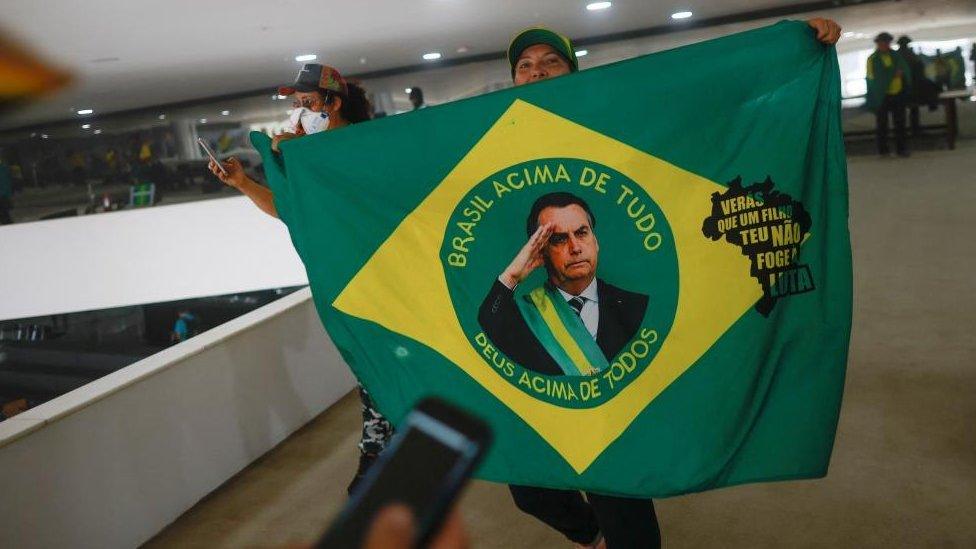Brazil riots: Despite rising fears, new round of protests flop
- Published
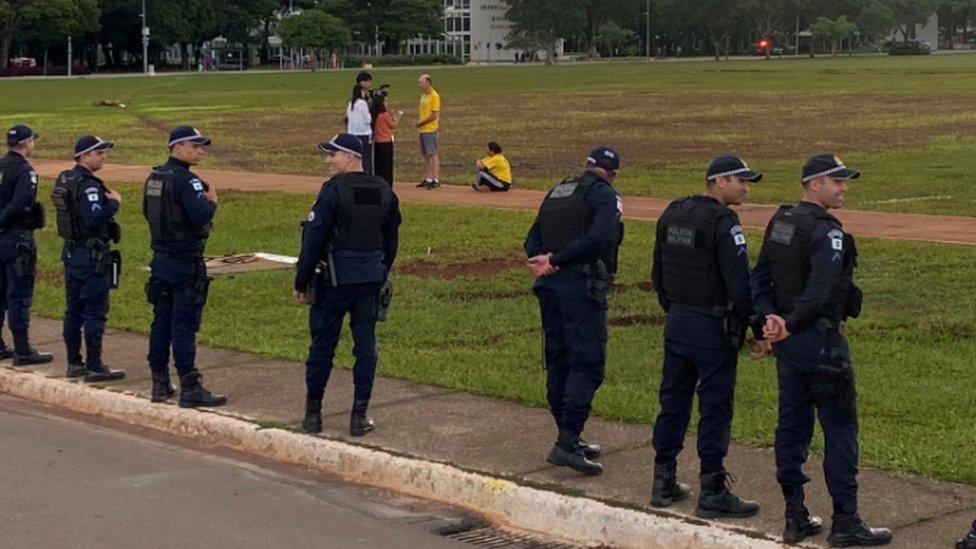
The protesters in yellow shirts were heavily outnumbered by riot police in the capital
As the sun set in the Brazilian capital Brasília on Wednesday, hundreds of police officers were on alert, riot shields and weapons at the ready.
Overhead, low-flying helicopters were hovering, with riflemen hanging from the doors, scanning for targets.
The potential threat: three soft-spoken protesters.
The trio were the only sign of an expected rally from supporters of former President Jair Bolsonaro that failed to materialise.
"I came to represent the right-wing," Gustavo, a young Bolsonaro supporter, told the BBC, standing near a long row of police officers several hundred metres from the Congress building.
"I didn't expect a lot of people to come [protest] in Brasília after what the government did," he added, referring to the crackdown against people suspected of involvement in the riots on 8 January.
"But I know in other cities there will be."
Earlier in the week, flyers and announcements spread on social media called on protesters to come to Brasília to "retake power", prompting a federal "security intervention" that saw military forces deployed to take charge of police and security duties in the city.
Ahead of the planned rally, authorities announced that demonstrators would be subject to bag searches, forced to pass through metal detectors and prohibited from carrying objects that could potentially be used as makeshift weapons, such as metal flagpoles.
Despite the tight security, officials said they welcomed potential protests - provided that they were peaceful.
"Our democracy is full," Ricardo Cappelli, the official tasked with overseeing security in the capital after the riots, told reporters. "The right to free demonstration will always be respected."
Despite the assurances, protests from Bolsonaro supporters fizzled, with no major demonstrations reported in any of the cities in which rallies were called.
On social media, some supporters of the former president speculated that the potential rallies were government ploys to entrap potential opponents.
One widely shared image, for example, depicted a mouse trap with the caption "a trap for patriots waiting in Brasília".
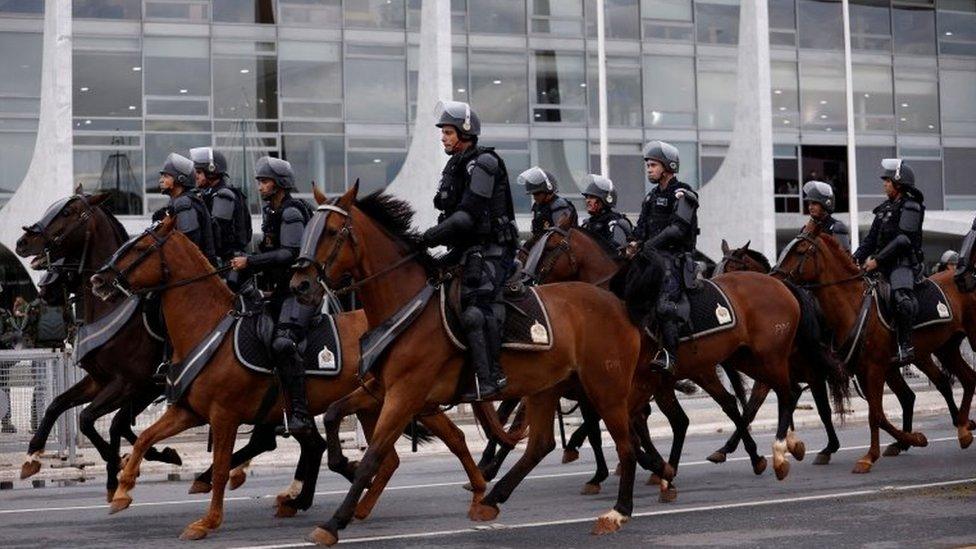
Security forces mounted on horses were earlier deployed to prevent any potential violence in the capital
Lucas, a 25-year-old Bolsonaro supporter, told the BBC he chose not to attend the rally because he didn't trust the authorities overseeing security.
"Where were they when the riot happened? Now they are calling us terrorists," he said. "How would anyone know there aren't infiltrators?"
Some Bolsonaro supporters - including Lucas and Gustavo - continue to insist that the 8 January riots were the work of provocateurs, a theory that - despite no evidence - has become increasingly popular among hardline "Bolsonaristas".
"Right-wing people don't have the profile to do this. They are workers. They are family people. They don't break things," Gustavo said. "They are being blamed [for the riots] by a dictatorship."
Even if Wednesday's protests failed to materialise, many Brazilians say they have been left shaken by the riots and expect more pro-Bolsonaro protests to take place again in the near future.
"I believe that protests will happen, surely," João, a Rio de Janeiro resident, told the BBC. "But the security forces will surely respond with more force now, after what happened."
Brazilian officials, for their part, have vowed to take whatever measures necessary to prevent a repeat of the riot.
"The federal capital will never again see what happened," Mr Cappelli told reporters. "The right of free demonstration is not to be confused with terrorism, and is not to be confused with an attack to democratic institutions."
Related topics
- Published11 January 2023
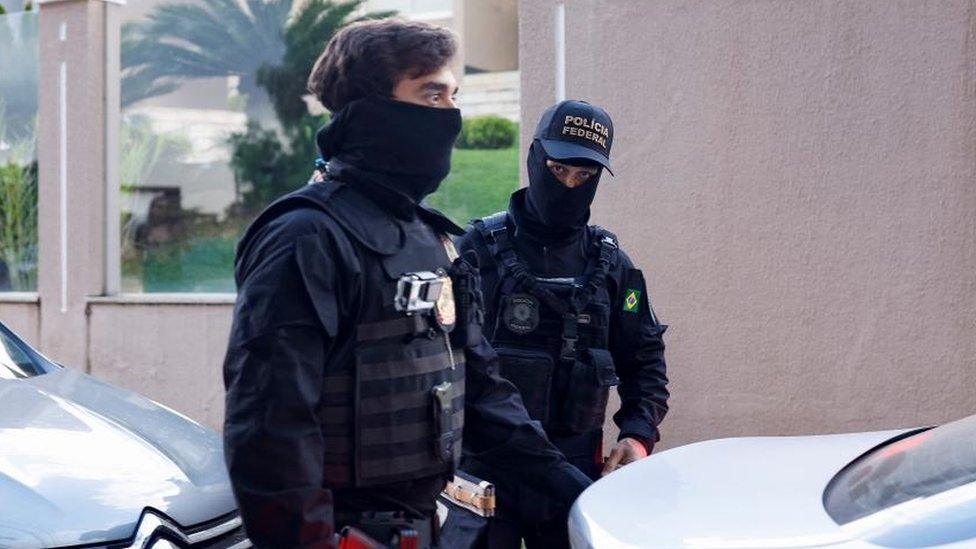
- Published10 January 2023
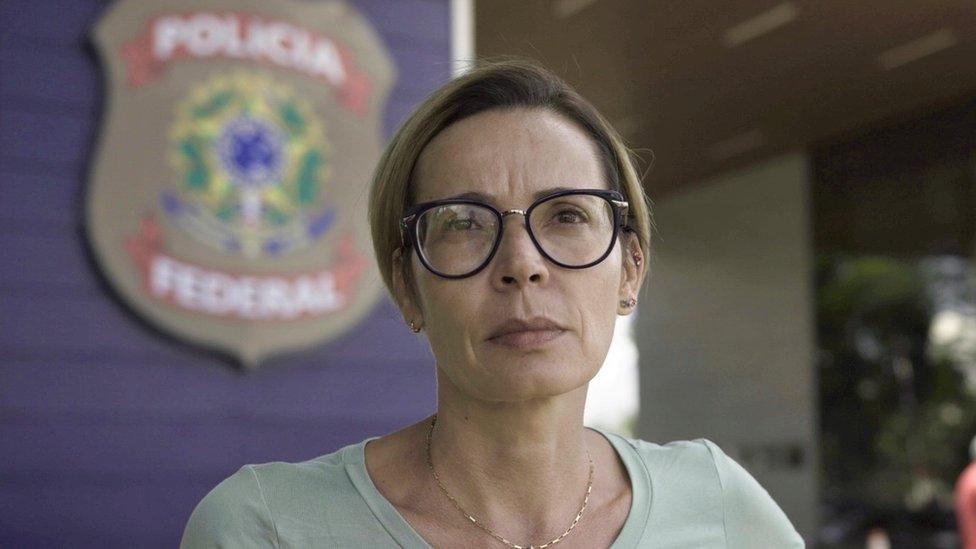
- Published9 January 2023
